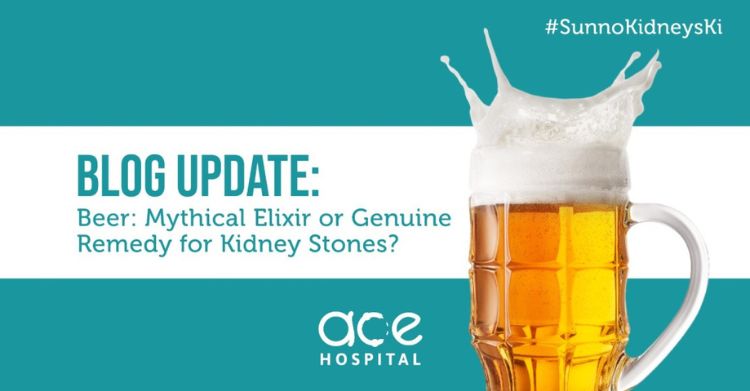In the realm of home remedies and traditional cures, beer has been touted as an unconventional yet effective treatment for kidney stones. This notion has sparked considerable debate among both patients and healthcare professionals. Is beer truly a magical potion capable of dissolving these painful renal deposits, or is this belief just another medical myth? This comprehensive exploration seeks to unravel the truth behind beer’s purported healing properties for kidney stones, weighing scientific evidence against popular anecdotes.
Unveiling the Myth: Beer and Kidney Stones
Kidney stones, the hard mineral deposits formed within the kidneys, are a source of excruciating pain for many. The quest for relief has led some to turn to beer, believed by some to facilitate the passage of stones. The theory suggests that the diuretic effect of beer increases urine output, potentially helping to “flush out” the stones from the urinary tract.
The Diuretic Argument
Beer, like other alcoholic beverages, possesses diuretic properties, meaning it can increase the amount of urine produced by the kidneys. This effect is often pointed to as a mechanism by which beer might aid in the expulsion of kidney stones by increasing the flow of urine through the kidneys and, in turn, possibly helping to dislodge and expel small stones or sand-like particles.
Hydration Factor
Hydration is a critical factor in preventing and managing kidney stones. Adequate fluid intake helps dilute the urine, reducing the concentration of minerals that can crystallize to form stones. Beer’s high water content can contribute to overall fluid intake, but it’s essential to consider the quality of hydration it offers compared to water or other non-alcoholic beverages.
Scientific Scrutiny: What Research Says
The scientific community remains skeptical about beer’s efficacy as a treatment for kidney stones. Research on the subject provides mixed outcomes, with most health experts cautioning against relying on beer or any alcoholic beverage as a primary strategy for kidney stone management.
Potential Benefits
A few studies suggest that moderate consumption of beer could lower the risk of kidney stones due to its diuretic effect and the presence of compounds that might help prevent the formation of calcium oxalate stones, the most common type. However, these findings do not endorse beer as a standalone treatment for existing stones.
Risks and Considerations
Despite any potential benefits, there are significant risks associated with using beer as a remedy for kidney stones:
Alcohol Consumption: Regular intake of alcohol can lead to dehydration, counteracting the diuretic benefit by reducing overall body water levels. Alcohol can also interfere with the body’s ability to absorb calcium, potentially exacerbating stone formation in susceptible individuals.
Caloric Intake: Beer is high in calories and can contribute to weight gain, a risk factor for kidney stone development.
Purine Content: Some beers are high in purines, which can increase uric acid in the urine, potentially leading to the formation of uric acid stones.
A Balanced Perspective
While moderate beer consumption might not necessarily harm individuals without a history of kidney stones or alcohol-related health issues, it is far from a proven or safe method to treat or prevent kidney stones. Effective management and prevention strategies are grounded in scientifically backed methods, including:
Adequate Hydration: Drinking plenty of water is the most effective way to prevent kidney stones. Aim for at least 8-10 glasses a day, more if you have a history of stones or are in a hot climate.
Dietary Modifications: Reducing sodium intake, limiting animal proteins, and getting enough dietary calcium can help prevent stone formation.
Medical Management: For those with recurrent stones, medication may be necessary to prevent new stones from forming.
Conclusion
The allure of beer as a simple cure for kidney stones is understandable, yet evidence supporting its efficacy is limited and mixed at best. Kidney stones require a nuanced approach to treatment and prevention, one that balances lifestyle modifications with medical management as needed. While enjoying beer in moderation is acceptable for most people, relying on it as a remedy for kidney stones is not advisable. As always, the best course of action is to consult with healthcare professionals for personalized advice and treatment strategies tailored to individual health needs and conditions.

